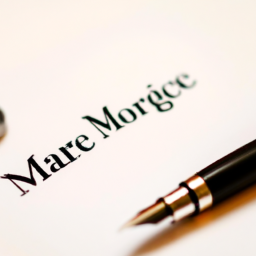Marriage is a sacred bond that brings two individuals together, promising a lifetime of love, companionship, and shared dreams. However, even the strongest marriages can face challenges that put their future at risk. When conflicts arise and communication breaks down, the thought of divorce may start to loom over a couple’s once blissful union. It is during these trying times that couples must actively seek ways to save a marriage from divorce. In this blog post, we will explore effective strategies and practical advice to help couples navigate through the stormy seas of marital discord and emerge with a stronger, more resilient relationship. Whether you are currently facing difficulties in your marriage or simply want to be prepared for any future obstacles, this guide aims to provide you with the tools and insights necessary to safeguard your marriage from the brink of dissolution.
Understanding the Causes of Relationship Struggles
In today’s fast-paced world, maintaining a healthy and fulfilling marriage can be challenging. Couples often find themselves facing relationship struggles that, if not addressed, can lead to divorce. However, by understanding the underlying causes of these difficulties, you can take proactive steps to save your marriage and build a stronger bond with your partner.
Communication Issues
One of the most common causes of relationship struggles is poor communication. Effective communication is the foundation of any successful marriage. When couples fail to communicate openly and honestly, it can lead to misunderstandings, resentment, and distance between partners.
To improve communication in your marriage, start by actively listening to your partner. Show genuine interest in their thoughts and feelings, and avoid interrupting or dismissing their concerns. Practice empathy and try to understand their perspective, even if you disagree. Additionally, make an effort to express yourself clearly and calmly, using “I” statements to avoid sounding accusatory. By fostering open and respectful communication, you can address issues before they escalate and strengthen your marital bond.
Another aspect of communication that often causes struggles in relationships is a lack of effective conflict resolution skills. Disagreements and conflicts are inevitable in any marriage, but it’s how you handle them that matters. Instead of resorting to blame or criticism, strive for a collaborative approach. Find common ground, compromise, and work together to find solutions that satisfy both partners. Remember, the goal is not to win arguments but to resolve conflicts and maintain a harmonious relationship.
Unmet Emotional Needs
Emotional needs play a significant role in a marriage, and when they go unmet, it can lead to dissatisfaction and relationship struggles. Each partner has unique emotional needs, such as love, support, validation, and companionship. When these needs are neglected or ignored, it can create distance and resentment between spouses.
To address unmet emotional needs, start by enhancing emotional intimacy in your marriage. Spend quality time together, engage in activities that you both enjoy, and prioritize open and honest conversations. Express your love and appreciation for your partner regularly, and make an effort to understand and fulfill their emotional needs. Remember, a strong emotional connection is vital for a successful marriage.
Additionally, it’s crucial to communicate your own emotional needs to your partner. Be clear about what you require to feel loved and supported, and encourage your spouse to do the same. By openly discussing and working towards meeting each other’s emotional needs, you can create a more fulfilling and satisfying marital relationship.
Neglecting the Relationship
Over time, it’s common for couples to become complacent and neglect their relationship. Busy schedules, career demands, and other responsibilities can take precedence, causing the marital bond to weaken. Neglecting the relationship can lead to feelings of loneliness, disconnection, and ultimately, relationship struggles.
To prevent neglect in your marriage, make a conscious effort to prioritize your relationship. Set aside dedicated time for each other, free from distractions. Plan regular date nights, weekend getaways, or even simple activities like cooking together or taking walks. By investing time and effort into nurturing your relationship, you can strengthen the bond and prevent it from deteriorating.
It’s also important to continuously work on improving your emotional and physical intimacy. Show affection, engage in small gestures of love and appreciation, and keep the romance alive. Regularly check in with each other, and be attentive to your partner’s needs and desires. By consistently nourishing your relationship, you can save it from the pitfalls of neglect.
In conclusion, understanding the causes of relationship struggles is the first step towards saving a marriage from divorce. By addressing communication issues, meeting emotional needs, and preventing neglect, couples can overcome challenges and build a strong and lasting partnership. Remember, saving a marriage requires effort, commitment, and a willingness to grow together. With dedication and the right approach, you can create a loving and fulfilling relationship that stands the test of time.

Effective Communication Strategies for Saving a Marriage
Marriage is a beautiful journey that requires effort, understanding, and effective communication to thrive. However, when couples face challenges, communication breakdowns often contribute to the deterioration of their relationship. To save a marriage from divorce, it is crucial to develop and implement effective communication strategies. In this article, we will explore some powerful techniques that can help you rebuild the lines of communication and strengthen your bond.
1. Active Listening
One of the fundamental aspects of effective communication is active listening. This involves giving your partner your undivided attention and truly hearing what they are saying. To practice active listening, eliminate distractions, maintain eye contact, and show genuine interest in what your partner is expressing. Avoid interrupting or formulating your response while they are speaking. Instead, focus on understanding their perspective, emotions, and needs. Reflecting back on what your partner said and summarizing it can also demonstrate that you are actively engaged in the conversation.
Furthermore, non-verbal cues such as nodding, smiling, and using appropriate facial expressions can convey empathy and understanding. By actively listening, you create a safe space for your partner to express themselves, fostering trust and emotional connection.
Remember, effective communication is a two-way street. Encourage your partner to practice active listening as well, as it allows both individuals to feel heard and validated.
2. Expressing Feelings Constructively
Expressing your feelings constructively is vital for resolving conflicts and strengthening your marriage. It is important to use “I” statements instead of “you” statements when discussing sensitive topics. For example, saying “I feel hurt when…” instead of “You always make me feel…” helps to avoid blame and defensiveness.
When expressing your emotions, be mindful of your tone of voice and body language. Aim for a calm and respectful approach, even when discussing challenging issues. This can prevent the conversation from escalating into a heated argument.
Additionally, it is crucial to avoid personal attacks or criticism. Instead, focus on describing your own feelings and needs. This allows your partner to better understand your perspective and work towards finding a resolution that satisfies both of you.
3. Problem-Solving Together
In a marriage, conflicts are inevitable. However, how you approach and resolve these conflicts can make all the difference in saving your relationship. Effective communication involves problem-solving together as a team.
Start by identifying the issue at hand and discussing it openly. Each partner should have an opportunity to express their concerns and desires. Avoid making assumptions about what your partner wants or needs. Instead, ask clarifying questions to gain a deeper understanding of their perspective.
Once the problem is clearly defined, brainstorm possible solutions together. Be open to compromise and find a middle ground that satisfies both partners. Remember, it is not about winning or losing, but rather finding a solution that strengthens your bond and supports the growth of your marriage.
During this process, it is important to remain respectful and avoid attacking your partner’s ideas or opinions. Maintain a positive and collaborative attitude, focusing on the shared goal of saving your marriage.
In conclusion, effective communication is the cornerstone of a successful marriage. By practicing active listening, expressing feelings constructively, and problem-solving together, you can save your marriage from the brink of divorce. Remember, it takes effort and commitment from both partners to rebuild the lines of communication and create a stronger, more fulfilling relationship.

Save a Marriage from Divorce
3. Seeking Professional Help: Marriage Counseling and Therapy
Marriage is a beautiful union between two individuals who have chosen to spend their lives together, but sometimes even the strongest relationships face challenges that can lead to the brink of divorce. In such situations, seeking professional help through marriage counseling and therapy can be a saving grace. This article will guide you through the process of seeking professional help to save your marriage from the verge of divorce.
Understanding the Importance of Professional Help
When a marriage is in crisis, it is essential to recognize that seeking professional help is not a sign of weakness, but rather a proactive step towards saving the relationship. Marriage counseling and therapy provide a safe and neutral space for couples to address their issues, improve communication, and work towards rebuilding their bond.
Professional help offers several advantages. Firstly, a trained marriage counselor or therapist can provide an unbiased perspective on the issues at hand, helping couples gain clarity and understanding. They can also guide couples in developing effective strategies to resolve conflicts and improve their overall relationship satisfaction.
Furthermore, seeking professional help demonstrates a commitment to the marriage and a willingness to invest time and effort into making it work. It shows that both partners are willing to put aside their differences and work together towards a common goal – saving their marriage.
Choosing the Right Marriage Counselor or Therapist
When seeking professional help, it is crucial to choose the right marriage counselor or therapist who can effectively guide you through the process. Here are some key factors to consider:
1. Qualifications and Experience: Look for a licensed and experienced professional who specializes in couples therapy. Check their credentials, certifications, and years of experience in the field.
2. Approach and Compatibility: Every therapist has a unique approach to counseling. It is essential to find someone whose therapeutic style aligns with your needs and values as a couple. Consider whether you prefer a more directive or collaborative approach, and choose accordingly.
3. Recommendations and Reviews: Seek recommendations from trusted friends, family, or healthcare professionals who have had positive experiences with marriage counseling. Additionally, reading online reviews can provide valuable insights into the therapist’s effectiveness and professionalism.
4. Cost and Accessibility: Consider the cost of therapy sessions and whether it fits within your budget. Also, evaluate the therapist’s location and availability to ensure convenient access for both partners.
The Process of Marriage Counseling and Therapy
Marriage counseling and therapy typically involve several stages. Here is a step-by-step guide to what you can expect:
1. Initial Assessment: The first session is usually an assessment where the therapist gathers information about the couple’s history, concerns, and goals. It is an opportunity for both partners to express their perspectives and establish rapport with the therapist.
2. Identifying Issues: The therapist helps identify the underlying issues contributing to the marital problems. This stage involves exploring individual and shared concerns, patterns of communication, and any unresolved conflicts.
3. Developing Strategies: Once the issues are identified, the therapist works collaboratively with the couple to develop strategies and techniques to address them. This may involve improving communication skills, learning conflict resolution techniques, or enhancing intimacy and emotional connection.
4. Implementing Changes: The therapist guides couples in implementing the strategies discussed during therapy sessions into their daily lives. This stage requires commitment and active participation from both partners to bring about positive changes in their relationship.
5. Ongoing Support: Marriage counseling is not a quick fix; it requires time and effort. The therapist provides ongoing support and guidance as couples navigate through challenges and continue to strengthen their relationship. Regular sessions help monitor progress and make necessary adjustments to the therapeutic approach.
Remember, the success of marriage counseling and therapy depends on the willingness of both partners to actively participate, be open to change, and invest in the process. It is essential to approach therapy with patience, empathy, and a genuine desire to save the marriage.
In conclusion, seeking professional help through marriage counseling and therapy can be a vital step in saving a marriage from divorce. It offers a structured and supportive environment for couples to address their issues, improve communication, and rebuild their relationship. By choosing the right therapist and actively participating in the process, couples can increase their chances of resolving conflicts, restoring trust, and creating a fulfilling and lasting partnership.
Let’s recap
Marriage is a beautiful union, but it can also face its fair share of challenges. When a relationship reaches the brink of divorce, it is essential to take proactive steps to save it. Communication is key in any relationship, and this becomes even more crucial when trying to salvage a marriage. Open and honest conversations allow both partners to express their feelings, concerns, and desires, fostering a deeper understanding of each other’s perspectives. Active listening is equally important, as it demonstrates empathy and validates the other person’s emotions.
In addition to effective communication, seeking professional help can be a game-changer. Marriage counseling provides a safe space for couples to address their issues with the guidance of a trained therapist. This neutral third party can help uncover underlying problems and offer practical solutions to rebuild trust and intimacy. It is essential to approach counseling with an open mind and a willingness to work on oneself. Remember, saving a marriage requires effort from both partners, and it is crucial to be patient and committed throughout the process.
By prioritizing communication and seeking professional guidance, couples can give their marriage a fighting chance. While it may not be easy, with dedication and a genuine desire to rebuild, it is possible to overcome obstacles and reignite the love that brought them together in the first place. Remember, a successful marriage is built on trust, respect, and compromise, and with these foundations in place, a relationship can thrive even after the darkest of times.
Frequently Asked Questions from our readers:
Q1: How can I save my marriage from divorce?
A1: Saving a marriage from divorce requires open communication, understanding, and commitment from both partners. It’s essential to identify the underlying issues and work together to find solutions. Seeking professional help, such as couples therapy or marriage counseling, can also provide guidance and support during this challenging time.
Q2: What are some common signs that a marriage is in trouble?
A2: Several signs may indicate that a marriage is in trouble, including constant arguments and conflicts, lack of intimacy or emotional connection, frequent feelings of unhappiness or dissatisfaction, or considering separation or divorce. It’s important to address these issues early on to prevent further damage to the relationship.
Q3: How can effective communication help save a marriage?
A3: Effective communication is crucial in saving a marriage from divorce. It involves active listening, expressing emotions and concerns honestly, and avoiding blame or defensiveness. By communicating openly and respectfully, couples can better understand each other’s needs, resolve conflicts, and rebuild trust and intimacy.
Q4: Is it possible to save a marriage without professional help?
A4: While seeking professional help is highly recommended, it is possible to save a marriage without it, depending on the severity of the issues and the willingness of both partners to work on the relationship. Open communication, self-reflection, and implementing healthy coping strategies can be beneficial. However, professional guidance can provide valuable tools and perspectives to navigate complex marital problems.
Q5: Can forgiveness play a role in saving a marriage?
A5: Forgiveness is a vital component in saving a marriage. It allows both partners to let go of past hurts and resentments, fostering healing and growth. Forgiving doesn’t mean forgetting or condoning harmful behavior, but rather choosing to move forward and rebuild trust. By practicing forgiveness, couples can create an environment of understanding, empathy, and compassion, strengthening their bond and increasing the chances of saving their marriage.

About Sarah:
Sarah is a certified marriage counselor and co-founder of SaveOurVows.com. Her expertise lies in helping couples reignite the spark in their relationships and create a lasting bond built on trust and understanding. As a devoted wife and mother, Sarah draws from her personal experiences and professional training to offer valuable guidance to couples seeking to save their marriages. Her articles focus on nurturing emotional connection and fostering a supportive environment where love can thrive.
About John:
John is a relationship expert and co-founder of SaveOurVows.com. With a Master’s degree in Marriage and Family Therapy, John is passionate about helping couples navigate the challenges that come with marriage. Having experienced the highs and lows in his own relationship with Sarah, he understands the complexities of married life and believes in the power of effective communication and emotional intimacy. John’s articles offer practical tips and insights to empower couples in their journey to a stronger and more fulfilling marriage.
Together as a Team:
John and Sarah’s mission is to provide a compassionate and supportive platform for couples in need of guidance and encouragement. Through their collaborative efforts, they aim to inspire love and commitment in marriages worldwide. As a couple themselves, they embody the principles they teach, and their dedication to helping others strengthen their relationships is the driving force behind SaveOurVows.com.
Favorite Topics:
Rekindling Romance: John and Sarah believe that rekindling the romance is an essential aspect of any successful marriage. Their articles on this topic offer creative ideas and practical strategies to keep the passion alive.
Effective Communication: Communication is the foundation of a healthy relationship. John and Sarah share expert tips to improve communication between couples and resolve conflicts constructively.
Building Trust: Trust is paramount in any marriage. Through their articles, they help couples rebuild trust and create a secure and loving environment.
Join Sarah and John’s Journey:
Sarah and John invite you to join them on their journey of empowering couples to save their vows and build lasting and fulfilling marriages. Their insights and advice aim to make a positive impact on your relationship, fostering a bond that stands the test of time.






